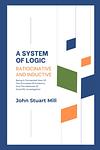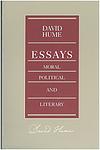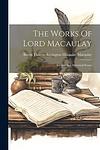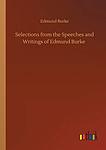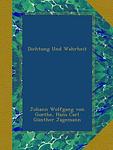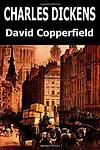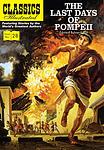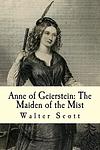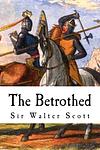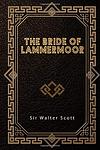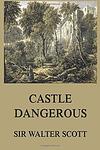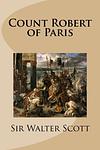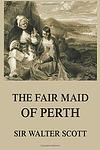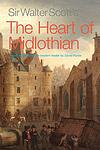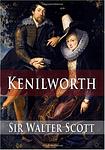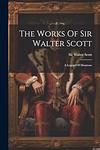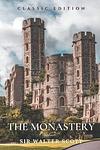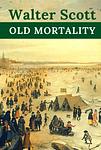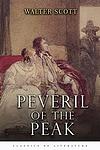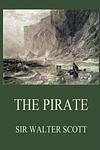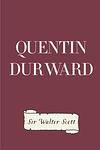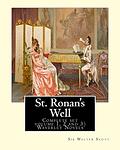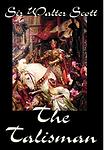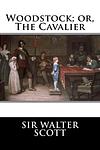John Lubbock, The Choice of Books (1896)
This is one of the 305 lists we use to generate our main The Greatest Books list.
-
The Voyage of the Beagle by Charles Darwin
This book is a vivid and exciting travel memoir as well as a detailed scientific field journal covering biology, geology, and anthropology that demonstrates the author’s keen powers of observation, written at a time when Western Europeans were still discovering and exploring much of the rest of the world. The author's five-year journey took him from the coasts of South America, Australia, and Africa to the South Pacific islands, during which he collected and documented the natural history of these areas. The voyage and the specimens he brought back would later form the basis for his famous theory of evolution.
The 1041st Greatest Book of All Time -
A System Of Logic by John Stuart Mill
"A System of Logic" is a comprehensive treatise on the principles and methods of scientific reasoning. The book elaborates on the nature of logic and its relation to truth, knowledge, and human understanding. It systematically explores the process of human thought and the structure of logical argumentation, distinguishing between deductive and inductive reasoning. The work also discusses the application of logic to the natural and social sciences, emphasizing the importance of empirical evidence and the scientific method in establishing valid conclusions. Through its rigorous analysis, the book aims to lay the foundations for sound reasoning and empirical inquiry, influencing the development of modern logic and philosophy.
The 6768th Greatest Book of All Time -
Essays by Francis Bacon
This collection is a seminal work of English literature, comprising a series of essays that delve into various subjects, ranging from politics and religion to love and truth. Written in the early 17th century, the essays are celebrated for their concise wisdom, rhetorical brilliance, and the author's deep insights into human nature and the complexities of life. The author, a philosopher, statesman, and scientist, employs a didactic style, offering practical advice and reflections on morality and ethics, which have remained relevant through the ages. The work is not only a reflection of the author's vast intellect and observational prowess but also serves as a valuable philosophical guide, illuminating the human condition and the societal norms of his time.
The 1725th Greatest Book of All Time -
Essays by Michel de Montaigne
This collection of essays explores a wide range of topics such as solitude, cannibals, the power of the imagination, the education of children, and the nature of friendship. The author employs a unique and personal approach to philosophy, using anecdotes and personal reflections to illustrate his points. The essays provide a profound insight into human nature and condition, and are considered a significant contribution to both literature and philosophy.
The 111th Greatest Book of All Time -
Essays, Moral, Political, And Literary by David Hume
This collection of essays by the philosopher explores a range of topics across ethics, politics, and aesthetics. Written in a clear, conversational style, the essays examine human nature, the workings of government, economic theories, and the merits of refined taste, among other subjects. The author employs a skeptical approach to question traditional doctrines and suggests that politics and morals should be grounded in empirical observations of the world. The work reflects the Enlightenment spirit of rational inquiry and has been influential in the development of modern political philosophy and economic thought.
The 6768th Greatest Book of All Time -
Critical And Historical Essays by Thomas Babington Macaulay
"Critical and Historical Essays" is a collection of essays written by a 19th-century historian and politician, which were originally published in various periodicals. The essays cover a wide range of topics, including historical figures such as John Hampden, Lord Burghley, and Machiavelli, as well as literary critiques of poets and dramatists like Milton and Byron. The work is renowned for its clear, vigorous prose and its confident handling of historical and literary material, reflecting the author's political and historical insights. The essays not only illuminate the subjects they cover but also offer a window into the intellectual concerns and styles of the Victorian era.
The 3802nd Greatest Book of All Time -
Essays And Tales by Joseph Addison
"Essays and Tales" is a collection of short works that delve into the author's reflections on society, politics, and human nature, written in a witty and engaging style. The essays often utilize the author's alter ego to critique various aspects of contemporary 18th-century life, ranging from fashion and social gatherings to literature and public behavior. The tales, on the other hand, are imaginative narratives that entertain and often carry moral lessons. Together, these pieces not only offer insights into the period's culture and values but also showcase the author's pioneering role in the development of the English essay.
The 6768th Greatest Book of All Time -
The Essential Writings of Ralph Waldo Emerson by Ralph Waldo Emerson
This book is a comprehensive collection of works by a renowned American philosopher and poet. It includes his most influential essays, lectures, and poetry, providing readers with a deep insight into his thoughts on nature, self-reliance, love, friendship, freedom, and the importance of intellectual independence. The book serves as a guide to the author's transcendental philosophy and his belief in individualism, nonconformity, and the inherent goodness of man and nature.
The 734th Greatest Book of All Time -
Selections From The Speeches And Writings Of Edmund Burke by Edmund Burke
This book is a compilation of excerpts from the speeches and writings of Edmund Burke, an influential 18th-century statesman and philosopher. Known for his strong support of the American Revolution and his opposition to the French Revolution, Burke's work covers a wide range of political and social issues. The selections in this volume highlight his thoughts on human rights, government, and society, showcasing his eloquent style and his commitment to the principles of conservatism and liberalism. This collection provides insight into Burke's complex and thoughtful perspectives that have made him a foundational figure in Western political thought.
The 3802nd Greatest Book of All Time -
Self Help by Samuel Smiles
"Self Help" is a seminal work that champions the values of hard work, thrift, and perseverance as the cornerstones of success. Written in the 19th century, the book compiles a series of biographical sketches that illustrate the author's belief in self-reliance and individual initiative. The author argues that these virtues, more than external assistance or advantages of birth, are what enable personal and societal advancement. The book was immensely popular upon its release, influencing the development of the self-help genre and inspiring readers to take personal responsibility for improving their own lives through determined effort and moral integrity.
The 6768th Greatest Book of All Time -
Zadig by Voltaire
The book is an Enlightenment-era philosophical novel that follows the adventures of its eponymous hero, a young nobleman in ancient Babylonia. Through a series of misfortunes and experiences, including love, injustice, and chance, the protagonist explores themes of fate, free will, and the search for truth. His journey is marked by encounters with a diverse cast of characters, each representing different aspects of society and human nature. The protagonist's wisdom and observations on human folly and the ironies of life offer a satirical critique of the social and political systems of the day, ultimately advocating for enlightenment and reason over superstition and tyranny.
The 2143rd Greatest Book of All Time -
Micromégas by Voltaire
"Micromégas" is a philosophical satire that tells the story of a giant from a planet circling the star Sirius, and his adventures traveling through the universe. Along with a companion from Saturn, who is also of considerable size though smaller than Micromégas, they visit Earth. Here, they interact with humanity, initially struggling to even perceive humans due to the vast difference in scale. The story explores themes of perspective, the relative nature of size and intelligence, and the limitations of human understanding. Through witty dialogue and ironic situations, the narrative critiques the arrogance and ignorance of human institutions and philosophies, highlighting the enlightenment ideals of reason and empirical knowledge.
The 6768th Greatest Book of All Time -
Faust by Johann Wolfgang von Goethe
The book is a tragic play in two parts that tells the story of a scholarly man named Faust, who becomes dissatisfied with his life and makes a pact with the devil, Mephistopheles. In exchange for unlimited knowledge and worldly pleasures, Faust agrees to give his soul to Mephistopheles after death. The narrative explores themes of ambition, despair, love, and redemption, ultimately leading to Faust's salvation.
The 84th Greatest Book of All Time -
Dichtung Und Wahrheit by Johann Wolfgang von Goethe
This autobiographical work offers a rich and introspective account of the author's early life, intellectual development, and the cultural milieu of the late 18th and early 19th centuries. It delves into his formative experiences, relationships, and the evolution of his thoughts and literary career. The narrative not only provides insights into the author's personal journey but also reflects on the broader human experience, exploring themes of truth, art, and the interplay between personal reality and creative expression. Through a blend of poetic storytelling and philosophical musings, the book presents a nuanced exploration of the shaping of an individual's identity and the forces that influence the creative process.
The 4162nd Greatest Book of All Time -
Vanity Fair by William Makepeace Thackeray
This classic novel follows the lives of two contrasting women, the cunning and ruthless Becky Sharp and the sweet and naive Amelia Sedley, against the backdrop of English society during the Napoleonic Wars. The book is a satirical exploration of the obsession with wealth, status, and social climbing, and the moral bankruptcy that can result from such pursuits. The narrative weaves an intricate tale of love, betrayal, and redemption, exposing the vanity and hypocrisy of high society.
The 72nd Greatest Book of All Time -
The History Of Pendennis: His Fortunes And Misfortunes, His Friends And His Greatest Enemy by William Makepeace Thackeray
The novel follows the life and adventures of Arthur Pendennis, a young man from the countryside who ventures into the world to seek his fortune and find his place in society. Starting as a naive and idealistic youth, Pendennis faces various trials and tribulations in love, friendship, and his career, which lead him to maturity and a deeper understanding of himself and those around him. Through his journey, the book explores themes of social class, vanity, and the contrast between appearance and reality, all set against a backdrop of 19th-century British society.
The 3802nd Greatest Book of All Time -
The Pickwick Papers by Charles Dickens
The book is a humorous and satirical depiction of English society in the 19th century, told through the travels and adventures of a group of gentlemen from London, led by a kind-hearted and naive man. Their escapades take them to various locales where they encounter a plethora of eccentric characters and find themselves in comical and sometimes absurd situations. The narrative is interspersed with tales and anecdotes told by the characters themselves, adding to the richness and diversity of the overall story.
The 213th Greatest Book of All Time -
David Copperfield by Charles Dickens
This novel follows the life of its titular protagonist from his childhood to maturity. Born to a young widow, David endures a difficult childhood when his mother remarries a harsh and abusive man. After his mother's death, he is sent to a boarding school before being forced into child labor. As he grows, David experiences hardship, love, and loss, all the while meeting a colorful array of characters. The novel is a journey of self-discovery and personal growth, showcasing the harsh realities of 19th-century England.
The 45th Greatest Book of All Time -
The Last Days Of Pompeii by Edward Bulwer-Lytton
This novel is a historical romance that vividly brings to life the final days leading up to the catastrophic eruption of Mount Vesuvius in AD 79, which buried the Roman city of Pompeii under volcanic ash. Through the intertwined destinies of its characters, including a noble Athenian, a virtuous woman, a sinister Egyptian priest, and a gladiator, the story explores themes of love, betrayal, and the clash between pagan and early Christian beliefs. Set against the backdrop of the decadent Roman Empire, the narrative builds to a dramatic climax, providing a poignant, immersive portrayal of the tragic event that sealed the city's fate, while also delving into the moral and philosophical questions of its time.
The 3203rd Greatest Book of All Time -
Adam Bede by George Eliot
"Adam Bede" is a 19th-century novel set in rural England that explores the themes of love, betrayal, and moral responsibility. The story revolves around a hardworking carpenter, Adam Bede, who is in love with a vain but beautiful dairymaid, Hetty Sorrel. However, Hetty is seduced by a young, thoughtless squire, Arthur Donnithorne, which leads to her becoming pregnant. When Arthur abandons her, Hetty leaves her baby in the woods, where it dies, and she is subsequently charged with infanticide. Adam, devastated by Hetty's actions, finds solace and eventually love with a devout Methodist preacher, Dinah Morris. The novel ends with Adam and Dinah marrying, finding happiness after the tragedy.
The 473rd Greatest Book of All Time -
Westward Ho! by Charles Kingsley
"Westward Ho!" is a historical adventure novel set in the Elizabethan era, following the exploits of Amyas Leigh, a young Englishman motivated by both patriotic fervor and personal revenge. He embarks on a journey to the New World and the Spanish Main, driven by his desire to defeat the Spanish at sea and his quest to find his lost love, Rose Salterne, who has been abducted. The novel vividly portrays the naval conflicts, explorations, and maritime adventures of the time, encapsulating the spirit of the English sea rovers and adventurers who sought glory and riches across the oceans.
The 6768th Greatest Book of All Time -
The Abbot by Sir Walter Scott
"The Abbot" is a historical novel that continues the story of Mary, Queen of Scots, after her imprisonment in Loch Leven Castle, focusing on her dramatic escape, her brief period of renewed power, and her ultimate departure from Scotland. The narrative intertwines her story with that of Roland Graeme, a young man who finds himself caught between his loyalty to the queen and his own personal ambitions. Set against the backdrop of political intrigue and religious conflict during the Reformation, the novel explores themes of loyalty, love, and power, as characters navigate the treacherous waters of the Scottish court.
The 3802nd Greatest Book of All Time -
Anne Of Geierstein by Sir Walter Scott
"Anne of Geierstein" is a historical novel that delves into the political and romantic intrigues of 15th-century Europe. The story follows Arthur Philipson, a young English merchant, who travels through the Swiss Alps and becomes entangled in the local conflicts between the Swiss and the powerful Duke of Burgundy. Along the way, Arthur meets and falls in love with the mysterious and enchanting Anne of Geierstein, who possesses seemingly supernatural abilities. As their relationship develops, Arthur is drawn deeper into the political machinations of the era, including the efforts to secure peace and alliances among the warring factions of Europe.
The 6768th Greatest Book of All Time -
The Antiquary by Sir Walter Scott
"The Antiquary" is a novel set in the late 18th century that revolves around Jonathan Oldbuck, an eccentric and somewhat pedantic scholar with a deep fascination for antiquities and local history. The story unfolds in a small Scottish town where Oldbuck becomes involved in the lives and troubles of other characters, including Lovel, a mysterious young man with an unclear past, and the Mucklebackit family, who suffer a tragic loss. The narrative combines elements of romance, mystery, and comic relief while exploring themes of national identity and the impact of the past on the present. Through its detailed setting and character-driven plot, the novel offers a rich portrayal of Scottish life and customs during the period.
The 3802nd Greatest Book of All Time -
The Betrothed by Sir Walter Scott
"The Betrothed" is a historical novel set during the time of the Crusades, focusing on the challenges and tribulations of a young noblewoman who is promised in marriage to a Welsh chieftain as part of a political alliance. The narrative delves into themes of loyalty, honor, and love, as the betrothed couple navigates the complexities of their arranged engagement amidst the backdrop of war and political strife. The story explores the impact of personal and political conflicts on individual destinies and relationships, offering a rich tapestry of medieval life, chivalric values, and the struggle for power.
The 3802nd Greatest Book of All Time -
The Black Dwarf by Sir Walter Scott
"The Black Dwarf" is set in the tumultuous borderlands of Scotland during the early 18th century, a time marked by rebellion and political upheaval. The novel follows the mysterious and misanthropic character known as the Black Dwarf, who lives in isolation and is rumored to possess magical powers. The narrative intertwines his enigmatic life with the romantic and political entanglements of the nearby residents, exploring themes of love, betrayal, and redemption against a backdrop of social and political turmoil. The story delves into the struggles between the Jacobite supporters and the Hanoverian government, reflecting the complex interplay of personal and historical narratives.
The 3802nd Greatest Book of All Time -
The Bride Of Lammermoor by Sir Walter Scott
Set in the tumultuous 17th century Scotland, this tragic novel weaves a tale of doomed love and political intrigue. The story centers around the passionate and ill-fated romance between Edgar, the Master of Ravenswood, who is impoverished and seeking to restore his family's honor, and Lucy Ashton, the daughter of his father's political enemy. Their love is challenged by societal pressures, family enmity, and a relentless twist of fate, leading to a dramatic and harrowing conclusion that underscores the destructive power of vengeance and the inevitable tragedy that can arise from the rigid constraints of honor and duty.
The 2253rd Greatest Book of All Time -
Castle Dangerous by Sir Walter Scott
"Castle Dangerous" is a historical novel set during the Scottish Wars of Independence. The story unfolds in 1306, amidst the tumultuous backdrop of the conflict between the Scots and the English. It centers around Lady Augusta of Berkely and her journey to Douglas Castle, known as Castle Dangerous, in the Scottish Lowlands. Disguised as a pilgrim, she seeks to reach her betrothed, an English knight, but finds herself in the midst of political intrigue and warfare. The novel explores themes of loyalty, bravery, and the struggle for Scottish independence, while also offering a romantic and chivalric portrayal of medieval Scotland.
The 3802nd Greatest Book of All Time -
Count Robert Of Paris by Sir Walter Scott
"Count Robert of Paris" is a historical novel set during the First Crusade, focusing on the complex interactions between the Western European crusaders and the Byzantine Empire. The story revolves around Count Robert of Paris, a brave but somewhat arrogant Frankish nobleman who challenges the Byzantine Emperor Alexius I, questioning his authority and integrity. As tensions escalate, the novel explores themes of honor, betrayal, and cultural clashes, weaving a rich tapestry of medieval intrigue, diplomacy, and warfare. The narrative also delves into the personal struggles and alliances formed among various characters, providing a vivid portrayal of the period's political and social dynamics.
The 3802nd Greatest Book of All Time -
The Fair Maid Of Perth by Sir Walter Scott
Set in the 14th-century Scotland, the novel revolves around the beautiful Catharine Glover, the fair maid of Perth, and her love for the armorer Henry Gow. Amidst the backdrop of political intrigue and social unrest, Catharine and Henry's romance is challenged by royal machinations and clan disputes. The story vividly portrays the historical period, featuring a mix of real historical figures and fictional characters, and culminates in dramatic events including brawls, battles, and personal redemption, reflecting themes of honor, love, and loyalty.
The 3802nd Greatest Book of All Time -
The Fortunes Of Nigel by Sir Walter Scott
"The Fortunes of Nigel" is a historical novel set in early 17th-century London, focusing on the young Scottish nobleman, Nigel Olifaunt, Lord Glenvarloch. Seeking to recover his family fortune, Nigel travels to the court of King James I, where he navigates a complex web of courtly intrigue, romance, and betrayal. Amidst the bustling backdrop of Jacobean society, he encounters a diverse array of characters, from nobles to moneylenders, and faces numerous challenges that test his honor and resolve. The novel explores themes of loyalty, justice, and the clash between personal and political ambitions.
The 3802nd Greatest Book of All Time -
Guy Mannering by Sir Walter Scott
The novel unfolds as a tale of prophecy and fate intertwined with the lives of its characters, primarily centering around Henry Bertram, the heir to the estate of Ellangowan, who is kidnapped as a child by smugglers after his father's financial ruin. The story spans over two decades, following Henry's adventures and misadventures as he grows up under an assumed identity. The narrative is rich with themes of loyalty, inheritance, and the supernatural, as the predictions of the astrologer Guy Mannering and the Gypsy matriarch Meg Merrilies play out in the lives of the Bertrams and their acquaintances. Set against the backdrop of the Scottish Lowlands, the tale weaves through a tapestry of social change and personal redemption, culminating in the restoration of family and fortune.
The 1811th Greatest Book of All Time -
The Heart Of Midlothian by Sir Walter Scott
The novel is a historical tale set in 18th-century Scotland, revolving around Jeanie Deans, a young woman of strong moral character, who embarks on a daunting journey from Edinburgh to London to seek a royal pardon for her wrongfully accused sister, Effie, who faces execution. Along the way, Jeanie encounters various characters from different strata of society, confronting issues of justice, morality, and national identity. Her steadfast loyalty and unwavering principles highlight the cultural and social tensions of the time, as the narrative intertwines personal drama with broader historical events, including the Porteous Riots and the influence of the Scottish Reformation.
The 877th Greatest Book of All Time -
Ivanhoe by Sir Walter Scott
Set in 12th-century England, the novel follows the story of Wilfred of Ivanhoe, a young Saxon knight, returning from the Crusades. He is disowned by his father for his allegiance to the Norman king Richard the Lionheart. The narrative encompasses themes of chivalry, rivalry, and the struggle between Saxons and Normans, while also highlighting the tension between Jews and Christians. The tale is known for its action-filled tournaments, sieges, and the character of Rebecca, a virtuous and strong Jewish woman.
The 243rd Greatest Book of All Time -
Kenilworth by Sir Walter Scott
Set in Elizabethan England, the novel weaves a tale of intrigue, love, and betrayal centered around the Earl of Leicester, who keeps his marriage to the beautiful Amy Robsart a secret to preserve his favor with Queen Elizabeth I. Ambition and political machinations lead to tragedy as the Earl's concealment of his marriage and his attempts to navigate the treacherous waters of the court ultimately result in heartbreak and disaster. The novel portrays the splendor and tumult of the Elizabethan era, culminating in the grandeur of the Earl's entertainment of the Queen at his castle of Kenilworth, where the hidden truths and dark consequences of his actions come to a head.
The 1670th Greatest Book of All Time -
A Legend Of Montrose by Sir Walter Scott
"A Legend of Montrose" is a historical novel set during the 17th-century Wars of the Three Kingdoms, focusing on the Scottish segment of the conflict. The story revolves around the military campaign of James Graham, 1st Marquis of Montrose, who leads a Royalist army against the Covenanters. Central to the narrative is the character Allan M'Aulay, a seer with a mysterious past, and his interactions with the mercenary Captain Dugald Dalgetty. The novel blends a rich tapestry of loyalty, betrayal, and warfare, while also exploring themes of honor, love, and the supernatural amidst the tumultuous backdrop of Scottish history.
The 3802nd Greatest Book of All Time -
The Monastery by Sir Walter Scott
"The Monastery" is a historical novel set in the time of the Reformation in Scotland, revolving around the lives of the inhabitants near the fictional Monastery of St. Mary's of Kennaquhair. The story explores the impact of the religious conflict on the local community and the monastery's inhabitants, weaving a tale of romance, political intrigue, and the struggle between Protestant reformers and the established Catholic Church. Central to the narrative are the fortunes of the Glendinning family, particularly the two brothers, Edward and Halbert, whose lives take dramatically different paths influenced by the tumultuous events of their time.
The 3802nd Greatest Book of All Time -
Old Mortality by Sir Walter Scott
Set in the 17th century during the Covenanting Rebellion in Scotland, the novel weaves a tale of adventure, romance, and political intrigue around the historical events of the time. The story follows the young hero, Henry Morton, who is caught between his loyalty to the Presbyterian Covenanters and his love for Edith Bellenden, a Royalist. As Morton becomes embroiled in the conflict, he must navigate a path through the tumultuous civil war, facing moral dilemmas and the consequences of his choices. The narrative also explores themes of honor, tradition, and the impact of history on individual lives, all while providing a rich portrayal of Scottish culture and the complexities of religious and political loyalties.
The 1851st Greatest Book of All Time -
Peveril Of The Peak by Sir Walter Scott
"Peveril of the Peak" is a historical novel set in 17th-century England during the reign of Charles II. The story revolves around the adventures of Julian Peveril, a Cavalier, and his friendship with a Puritan named Major Bridgenorth. Both men are caught in the political and religious turmoil following the English Civil War, including the infamous Popish Plot. The novel explores themes of loyalty, betrayal, and the clash between different religious and political factions, all while weaving a tale of romance and intrigue as Julian navigates the dangerous landscape to clear his name and protect his loved ones.
The 3802nd Greatest Book of All Time -
The Pirate by Sir Walter Scott
"The Pirate" is a historical novel set in the early 18th century on the northern islands of Scotland. It tells the story of a young and daring pirate who falls in love with the beautiful but strong-willed daughter of a local official. As their forbidden romance unfolds, the pirate struggles to escape his past and reconcile his life of adventure with his desire for legitimacy and peace. The novel explores themes of love, loyalty, and the clash between traditional values and the romantic ideal of freedom on the high seas. Through vivid descriptions and rich historical detail, the narrative captures the tumultuous life of pirates and the stark, imposing landscapes of the Scottish isles.
The 3802nd Greatest Book of All Time -
Quentin Durward by Sir Walter Scott
"Quentin Durward" is a historical novel set in the 15th century, revolving around the adventurous life of its titular character, a young Scottish man who travels to France to seek his fortune. In the service of King Louis XI, Quentin becomes embroiled in the complex political machinations of the time, involving the struggle between the King and Charles the Bold, Duke of Burgundy. Throughout his journey, Quentin also finds himself in a romantic entanglement with Isabelle, Countess of Croye, navigating a path filled with danger, intrigue, and the moral challenges of loyalty and honor.
The 3802nd Greatest Book of All Time -
Redgauntlet by Sir Walter Scott
Set in the mid-18th century, the novel weaves a tale of political intrigue and personal struggle, centered around a Jacobite rebellion plot. The story follows a young man who, while on a journey to discover his family's past, becomes entangled in a secret plan to restore the Stuart monarchy to the British throne. As he navigates a world of clandestine meetings, coded letters, and disguised identities, he encounters historical figures and experiences the tension between loyalty to one's heritage and the reality of contemporary political power. The narrative explores themes of honor, betrayal, and the complexities of allegiance during a tumultuous period in Scotland's history.
The 2411th Greatest Book of All Time -
Rob Roy by Sir Walter Scott
The novel is set in the 18th century and follows the journey of a young Englishman, Frank Osbaldistone, who travels to Scotland to retrieve a stolen fortune from the outlaw, Rob Roy. Throughout his journey, Frank becomes entangled in the Jacobite rebellion, falls in love with a Scottish woman, and learns of the complexities of Scottish politics and culture. The story is a mix of historical fact and fiction, with Rob Roy serving as a symbol of the Scottish struggle for justice and independence.
The 1013th Greatest Book of All Time -
Saint Ronan's Well by Sir Walter Scott
"Saint Ronan's Well" is a novel set in the early 19th century, revolving around the social dynamics and intrigues of a small Scottish spa town. The story focuses on the interactions among the town's visitors and residents, including the mysterious and troubled Valentine Bulmer, who is disguised as the Earl of Etherington. The plot thickens with mistaken identities, romantic entanglements, and a tragic duel, all unfolding against the backdrop of the spa's rising and falling fortunes. The novel explores themes of deception, societal expectations, and personal redemption, offering a critical look at the impact of tourism and commercialization on traditional communities.
The 3802nd Greatest Book of All Time -
The Talisman by Sir Walter Scott
"The Talisman" is a historical novel set during the Third Crusade, focusing on the conflict between Richard the Lionheart, King of England, and Saladin, Sultan of Egypt and Syria. The story explores themes of chivalry, honor, and the cultural clash between the Christian West and the Islamic East. The plot revolves around a talisman, which is believed to have healing powers, and the knight who is tasked with delivering it to Richard. The novel presents a nuanced view of both sides of the Crusade, highlighting the virtues and flaws of each.
The 1910th Greatest Book of All Time -
Waverley by Sir Walter Scott
Set during the Jacobite uprising of 1745, this historical novel follows the story of Edward Waverley, an English gentleman who is sent to Scotland by his father. There, he becomes embroiled in the rebellion, torn between his loyalty to his family and the king, and his sympathy for the Jacobite cause. The novel explores the complexities of politics, culture, and identity during this turbulent period in Scottish history.
The 1071st Greatest Book of All Time -
Woodstock by Sir Walter Scott
Set against the backdrop of the English Civil War, this historical novel explores the conflicts between Roundheads and Cavaliers, loyalty and duty, as well as love and honor. The narrative follows the Royalist family of the noble Sir Henry Lee as they struggle to protect their ancestral home, Woodstock, from the encroaching forces of the Parliamentarians. A tale of treachery and heroism, the book intertwines the lives of its characters with the tumultuous political events of the time, offering a vivid portrayal of 17th-century England and the impact of war on society and individuals alike.
The 2253rd Greatest Book of All Time
The Choice of Books (Book), 147 Books
The List that started it all. This is one of the very first "Greatest Books of All Time" lists and caused quite a stir back in it's day. Here's a good article about it: https://www.independent.co.uk/arts-entertainment/books/features/sir-john-lubbock-the-book-list-literature-reading-godfather-mustread-listicle-a8320811.html
John Lubbock, 1st Baron Avebury, 4th Baronet, PC, DL, FRS, FRAI (30 April 1834 – 28 May 1913), known as Sir John Lubbock, 4th Baronet from 1865 until 1900, was an English banker, Liberal politician, philanthropist, scientist and polymath. Lubbock worked in his family company as a banker but made significant contributions in archaeology, ethnography, and several branches of biology. He coined the terms "Paleolithic" and "Neolithic" to denote the Old and New Stone Ages, respectively. He helped establish archaeology as a scientific discipline, and was influential in debates concerning evolutionary theory.
Added about 1 month ago.
This list has a weight of 34%. To learn more about what this means please visit the Rankings page.
Here is a list of what is decreasing the importance of this list:
- Voters: 1 person voted
- List: only covers mostly "Western Canon" books
If you think this is incorrect please e-mail us at [email protected].

